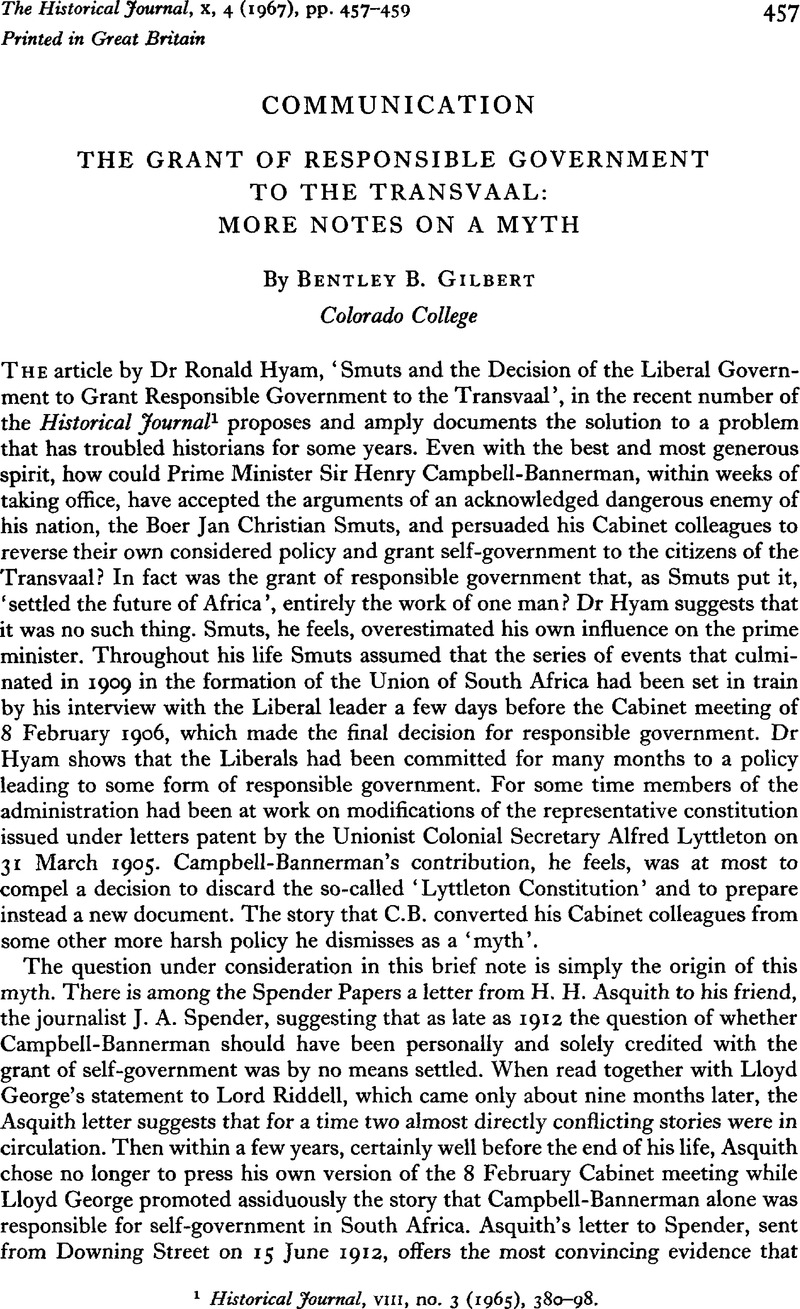No CrossRef data available.
Published online by Cambridge University Press: 09 December 2010

1 Historical Journal, viii, no. 3 (1965), 380–98.Google Scholar
2 Spenders Papers, British Museum Additional MSS. 46392/96. The Asquith Papers at the Bodleian contain no letter to which the above could be an answer.
3 George, Lord Riddell, More Pages From My Diary, 1908–1914 (London, 1934), p. 144.Google Scholar
4 R. C. K. Ensor reports that Lloyd George told him personally ‘many years afterwards’ that the credit for responsible government in the Transvaal belonged solely to the prime minister as the result of his speech (Ensor, R. C. K., England, 1870–1914, Oxford, 1949, p. 390).Google Scholar
5 In his Memories and Reflections, published in 1928, Asquith quoted a letter from General Botha, sent on the occasion of the passage of the South Africa bill, in which Botha regretted that ‘one noble figure is missing…who should have lived to see the fruits of his work. For what he has done in South Africa alone the British Empire should always keep him in grateful memory’ (Lord Oxford and Asquith, Memories and Reflections, Boston, 1928, i, 233). This appears to be one of the earliest statements of the Campbell-Bannerman legend. But certainly whatever Botha knew of the 8 February meeting must have come from Smuts, and in any case the statement quoted only praises the prime minister in general terms. Even without the Transvaal constitution, he had done much to earn the Boers' gratitude.